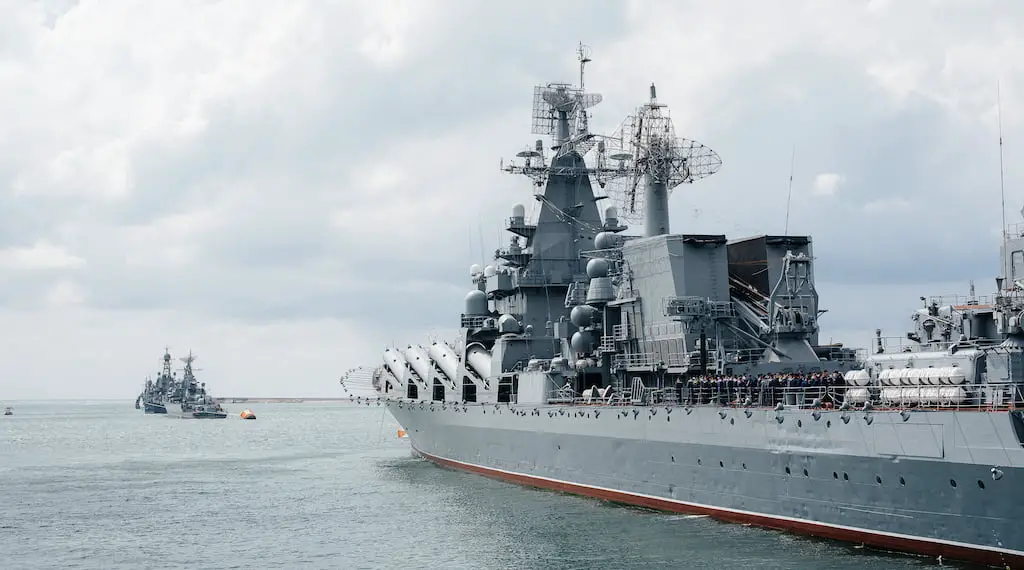Throughout history, science has been crucial to warfare, dating back to using gunpowder and muskets. Over the years, militaries have relied on scientific advancements that lead to modern warfare with increasingly deadly weapons such as the machine gun, tank, atomic bomb, patriot missile system and intercontinental ballistic missile (ICBM).
Today, science remains a vital aspect of warfare, aiding in creating new weapons, providing insight into enemy tactics, and safeguarding military personnel. The role of science in war can be categorised into three main areas: weapon development, enemy comprehension, and force protection.
Developing New Weapons
Throughout history, militaries have relied on science to develop new weapons and technologies. In the early days of gunpowder and muskets, for example, scientists helped militaries develop better ways to make gunpowder and more accurate muskets. In the centuries since, science has helped militaries develop ever more lethal weapons, from the machine gun and the tank to the atomic bomb and the intercontinental ballistic missile.
Today, science continues to play a critical role in the development of new weapons. For example, engineers are using computer simulations to design more effective bombs and missiles, while physicists are working on developing new types of energy weapons, such as lasers and particle beams.
The United States has long been a world leader in military technology, and a large part of that is due to the role of science in developing new weapons. In the early days of the country, science was not yet developed enough to be of much help in military endeavour’s. However, as the country progressed and scientific knowledge increased, science began to play a larger role in the development of new weapons.
One of the first examples of this is the American Civil War. The Union had a significant advantage over the Confederacy in terms of industrial capacity, which allowed them to produce more and better weapons. One of the key weapons in the Union’s arsenal was the rifled musket, which was far more accurate than the smoothbore muskets used by the Confederates. The Union also had access to better quality gunpowder, which gave them a significant advantage in terms of firepower.
In the early 20th century, science continued to play a role in the development of new weapons. The first world war saw the introduction of new technologies such as the tank, the machine gun, and chemical weapons. These weapons were developed through a combination of scientific knowledge and engineering expertise.
After the first world war, the role of science in weapon development became even more important. This was due to the development of new theories in fields such as physics and chemistry. These theories allowed for the development of new weapons, such as nuclear weapons.
Today, science plays a vital role in the development of new weapons. The United States military is constantly researching new technologies that can be used in warfare. Much of this research is done in secret, in order to maintain the country’s military advantage.
Science will continue to play a vital role in the development of new weapons. As our knowledge of the universe increases, so too will our ability to develop new and more powerful weapons.
Understanding the enemy
In addition to developing new weapons, science also plays an important role in helping militaries understand their enemies. For example, psychologists are helping militaries better understand the mindset of terrorists, while biologists are working on developing new ways to detect and defend against biological weapons.
In the future, science may also help militaries deal with other types of threats, such as cyber-attacks. By better understanding the nature of these threats, and the science behind them, militaries will be better equipped to defend against them.
Modern warfare is increasingly dependent on science and technology for understanding and combating enemy forces. This was most clearly seen in the Gulf War, where the use of satellite imagery, thermal imaging, and night vision allowed coalition forces to gain a decisive advantage over the Iraqi army.
The use of science in warfare is not limited to high-tech gadgetry, however. A better understanding of the enemy’s physiology can lead to more effective methods of incapacitating them. For example, the use of nerve gas against the Japanese in World War II was based on the knowledge that the Japanese were particularly susceptible to this type of weapon.
Similarly, a better understanding of the enemy’s psychological makeup can be used to develop more effective propaganda and psychological warfare techniques. The use of social media in modern warfare is based on the understanding that humans are social animals and are therefore susceptible to influence from their peers.
In short, science plays an essential role in understanding the enemy in modern warfare. Without a thorough understanding of the enemy’s strengths and weaknesses, it is difficult to develop effective strategies for combating them.
Protecting one’s own forces
Finally, science also plays an important role in protecting one’s own forces. For example, medical science is being used to develop new ways to treat injuries and diseases, while environmental science is being used to help militaries deal with the effects of climate change.
Future of Modern Warfare
In the future, science is likely to play an even more important role in warfare, as militaries increasingly rely on technology to gain an advantage over their enemies. As such, it is critical that militaries continue to invest in science and research, in order to stay ahead of the curve.
Conclusion
The use of science has also played a major role in protecting one’s own forces from the enemy. The development of radar and satellite technology has allowed for the early detection of enemy forces. The use of vaccines and antibiotics has helped to protect soldiers from the effects of the disease. The use of body armour and helmets has helped to protect soldiers from the effects of bullets and shrapnel.
The role of science in warfare will continue to be important in the future. The development of new and more effective weapons and technologies will play a major role in determining the outcome of future conflicts. The ability to detect and track the enemy, protect one’s own forces from the effects of battle, and develop new and more effective weapons will be crucial in ensuring victory in future wars.




